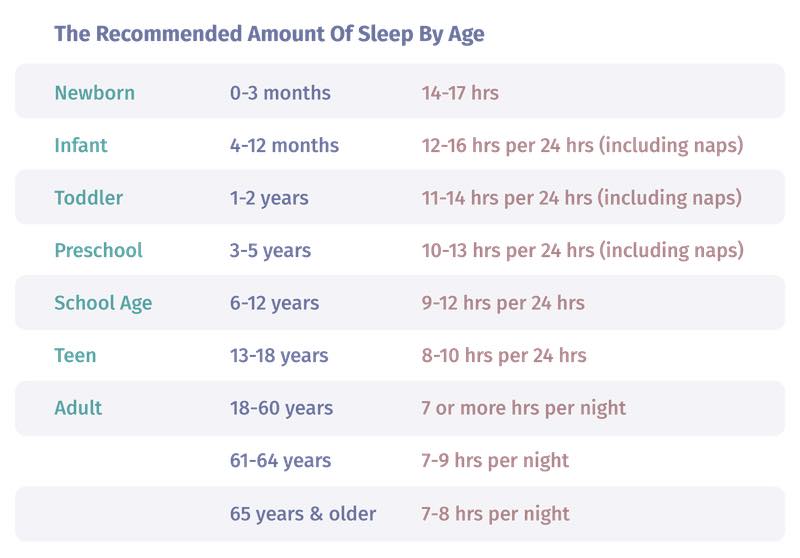Getting enough sleep at night is often easier said than done. One reason you may not be sleeping enough is that you aren’t allowing yourself enough time to rest.
People procrastinate going to bed for several reasons, although staying up too late can lead to feeling sleep-deprived. If you’re someone who wants to work on fixing their sleep schedule, keep reading to learn why the time you go to bed might matter and how to find out your ideal bedtime.
[Editor’s Note: The information provided should not be considered a substitute for professional medical advice. Please consult a medical expert if you have questions related to your own health.]
Does the Time You Go to Bed Matter?
Long story short: yes! The time you go to bed does matter because your bedtime can affect how long you sleep and your sleep quality. But let’s talk about why.
Most people usually wake up at the same time every day throughout the week to get ready for work or other responsibilities like appointments or raising kids. With only 24 hours in the day, there’s only so much time available to receive a sufficient amount of sleep to be well rested. It’s a better idea to rest throughout the night than sleep in short bursts throughout the day when most are awake.
Understanding Sleep Cycles
Even if you are someone who needs fewer hours of sleep per night than most, a late bedtime impacts the structure of your sleep cycles. In a full night of sleep, the average person should experience four to six sleep cycles which last between 80 to 100 minutes each.
In these cycles, you go through rapid eye movement (REM) and non-rapid eye movement (NREM) sleep, and most of your body’s restorative processes occur in the NREM sleep phase. As you complete more sleep cycles, the REM sleep phase becomes longer as the night goes on.
People with earlier bedtimes usually spend more time in deeper stages of sleep during NREM sleep. Going to bed late can affect the amount of time you spend in deep sleep, which could impact the quality of your sleep and how well-rested you feel when you wake up.
Understanding Your Circadian Rhythm
The timing of your sleep-wake schedule is determined by internal and external cues from the environment. This is called your circadian rhythm, and it follows an internal 24-hour cycle that responds to when the sun rises and sets. Whenever the sun sets and it begins getting dark outside, your body releases a hormone called melatonin which signals your body to go to sleep.
You are also influenced by your chronotype, which is your personal preference for sleeping and waking. Some people think of themselves as early birds who feel most energized in the morning, while others consider themselves night owls who prefer to stay up late. What times of the day you feel most awake and energized can help determine what times you should wake up and go to sleep.
RELATED: Early Birds vs Night Owls – Is One Better Than The Other?
How Many Hours of Sleep Do You Need?
The purpose of setting a healthy, ideal bedtime is to ensure you are getting enough sleep. How much sleep you need will change across your lifetime. Typically, as people get older they require fewer hours of sleep. So an adult would need fewer hours of sleep than a teenager or toddler.. The CDC’s recommendation for adults is to receive at least seven hours of sleep.
Here’s a look at the CDC’s recommended number of hours of sleep per night according to age:

There are a few other considerations that affect how much sleep you need. For instance, if you are recovering from an illness, jet lag, or sleep debt, you may need extra hours of sleep for a few nights to return to feeling well-rested. People who are pregnant may also require more hours of sleep due to feeling excessively sleepy during the day.
What Time Should You Go To Bed?
Your circadian rhythm is the internal clock that signals to your body when to fall asleep and when to wake up. Circadian rhythms are regulated by your genetics and by the amount of daylight outside. When it gets dark outside, melatonin is released to signal your body that it’s time to rest. It’s usually healthiest to go to bed after it’s completely dark outside and wake up closer to when the sun rises.
Adults who require between seven to nine hours of sleep a night and work a typical 9-to-5 job should be going to bed between 8 p.m. and midnight. If you work night or rotating shifts, your bedtime will change according to your schedule. Keep reading to learn how to set a bedtime that aligns with your schedule and meets your sleep needs.
Finding Your Ideal Bedtime
Typically, your ideal bedtime comes down to your daily schedule and responsibilities and the recommended amount of sleep you need based on your age. You may also want to consider whether you are an early bird or a night owl, depending on when you feel more energized.
First, consider what time you need to be awake to arrive at work on time, take the kids to school, or any other commitments you have in the morning. Then, determine how long you want to sleep based on your age and how much sleep you need to feel well-rested.
Next, count backward from the time you want to wake up from how many hours you should be asleep. For example, if you need to be awake at 7:30 a.m. and prefer to sleep eight hours a night, then your ideal bedtime would be 11:30 p.m. You could also set aside time beforehand to account for how long it takes for you to fall asleep. For the average person, it usually takes around 10-15 minutes to fall asleep, though like always, it will vary from person to person.
Although weekends are usually the time for late nights and time to yourself, your bedtime should ideally be the same on weekends as it is on weekdays. Going to bed late on weekends can potentially throw off your bedtime rhythm and sleep hygiene practices you keep on workdays when it’s key to be well rested.
Tips for Consistent Sleep
A consistent bedtime usually goes hand in hand with getting a consistent amount of sleep. But getting enough sleep is sometimes easier said than done. Here are a few tips to get more consistent sleep along with going to bed at a regular time.
Create a Bedtime Routine
In order to have a consistent bedtime, consider creating a regular bedtime routine. An hour or two before your bedtime, form habits by doing the same tasks to get you ready for bed every night, even on weekends. Opt for habits to calm your mind and make you feel more comfortable and cozy like putting on comfortable pajamas.
Avoid Caffeine and Alcohol
Caffeine and alcohol are substances that can counteract your body’s circadian rhythm. Experts recommend that these should be avoided for several hours before going to bed. Otherwise, you may experience difficulty falling asleep or staying asleep.
Limit Your Daytime Naps
Keeping a consistent bedtime is about not disturbing your sleep cycles. Heavily relying on daytime naps for restful sleep can offset your bedtime and affect how awake you feel the next day. If you are feeling sleepy in the afternoon or evening, try limiting your naptime to 20-30 minutes to prevent waking up feeling groggy or even more fatigued.
RELATED: The Ultimate Guide To Naps
Sleep in an Ideal Environment
Your sleep environment can either promote healthy, restful sleep or it could potentially cause more sleep disturbances. The ideal sleep environment would be to sleep in a dark, quiet, and cool room on a comfortable mattress with cozy bedding. Blackout curtains and eye masks effectively block out light to prevent disrupting your circadian rhythm.
Avoid Blue Light Exposure
Blue light is a type of light that is emitted by electronic devices like computers, TVs, and smartphones. It also stimulates your brain and can make you feel alert, which is exactly what you are trying to prevent from happening around bedtime.
Light exposure, especially blue light exposure, prevents you from falling asleep by stopping your body from releasing melatonin, the sleep-wake cycle hormone. The best practice is to not use your TV or phone to help you fall asleep and to keep your electronics turned off all night.
FAQs
What is the best time to go to bed and wake up?
The best time to go to bed and wake up depends on a few factors including your daily schedule and how much sleep you need. To align your sleep schedule with your natural circadian rhythm, it’s best to go to bed at night and wake up around sunrise. For most adults, the ideal bedtime is between 8 p.m. and midnight in order to receive seven to nine hours of sleep.
What is a healthy sleep cycle?
Sleep cycles refer to the stages of sleep one repeats several times before waking up. It takes about 80 to 100 minutes to cycle through the non-rapid eye movement (NREM) and rapid eye movement (REM) sleep stages, and a person should repeat this cycle four to six times each night to feel well rested. Most of your sleep schedule is spent in the NREM sleep stage, which is when deep sleep occurs.
Is 7 p.m. too early for bed for adults?
Going to bed at 7 p.m. is not too early for an adult if they must wake up in the early morning for work or other responsibilities. Typically, adults should go to bed after it is dark outside to align their sleep schedule with their circadian rhythm. But if you need to be well-rested and awake between 2 a.m. and 4 a.m., then 7 p.m. is a good time to go to bed.

